In a world where stress is often an unwelcome companion. For this reason, health-conscious choices are becoming increasingly prevalent, and the allure of herbal tea is undeniable. Steeped in tradition and celebrated for its merits or benefits, herbal tea is a testament to nature’s remedies’ power.
From calming chamomile to invigorating peppermint or nutrient-packed moringa tea, the world of herbal teas offers a diverse array of flavors and potential health perks.
We Are Presenting Here:
A Botanical Symphony: The Ingredients of Herbal Tea
Unlike true teas, such as green, black, white, and oolong, which are derived from the Camellia sinensis plant, herbal teas do not contain any tea leaves. Instead, they are crafted from botanical elements known for their aromatic and therapeutic properties.
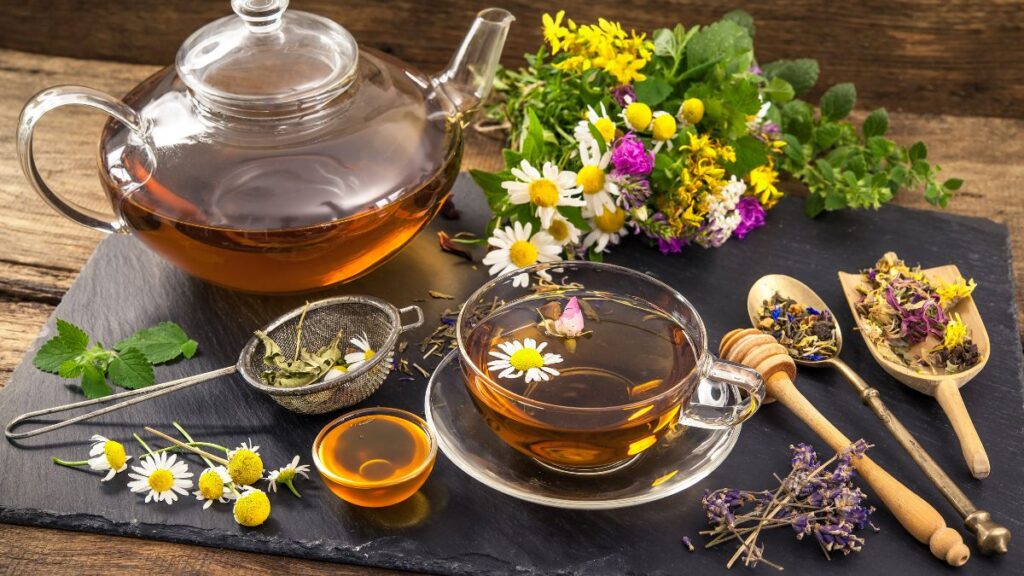
Herbal tea, often referred to as tisane, is a beverage made from the infusion of various plants, herbs, spices, and flowers.
The ingredients in herbal teas are as diverse as the environments they thrive in.
Chamomile, with its delicate floral notes, is cherished for its calming effects and potential to promote relaxation and sleep.
Peppermint, boasting a refreshing and minty flavor, is prized for its digestive benefits and ability to alleviate symptoms such as bloating and indigestion.
Meanwhile, moringa, ginger, turmeric, and cinnamon lend their warming spices to teas known for their anti-inflammatory properties and immune-boosting potential.
A List of Different Kinds of Herbal Tea:
Chamomile Tea:

- Known for its delicate floral aroma and calming properties, chamomile tea is a soothing brew often enjoyed before bedtime to promote relaxation and improve sleep quality.
- It may also help alleviate stress and anxiety.
Peppermint Tea:
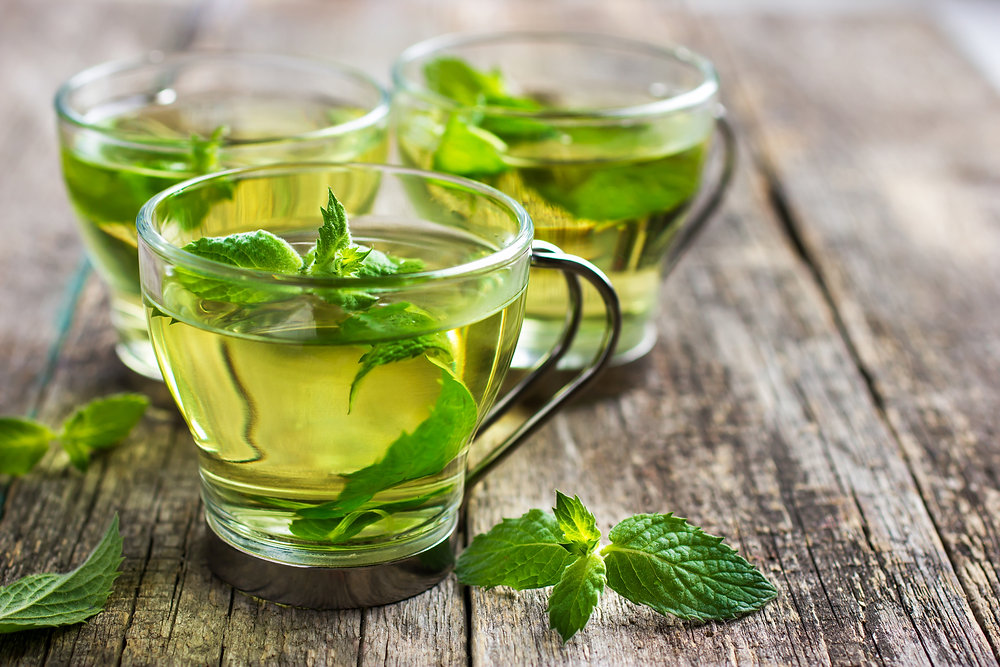
- With its refreshing minty flavor, peppermint tea is prized for its digestive benefits.
- It can help soothe upset stomachs, alleviate bloating and gas, and promote overall digestive health.
Moringa Tea:
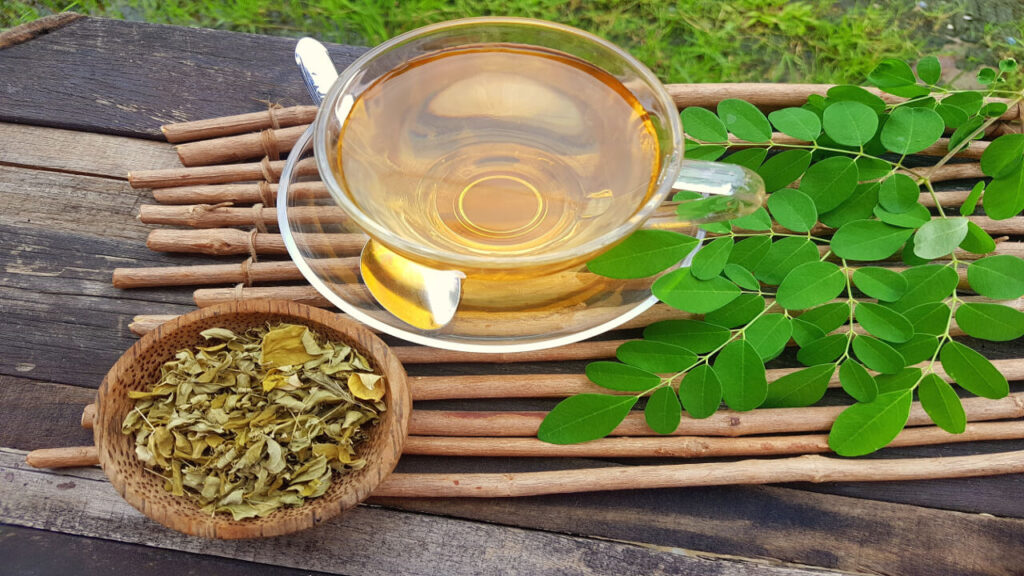
- Moringa tea is packed with nutrients, including vitamins, minerals, and antioxidants.
- It is known for its earthy flavor profile and potential health benefits, such as boosting energy levels, supporting immune function, and promoting overall well-being.
- Moringa tea is also prized for its anti-inflammatory properties and may aid in digestion and weight management.
Ginger Tea:
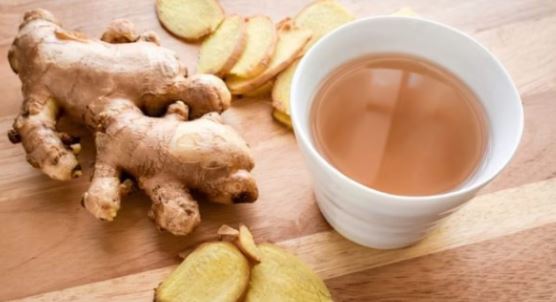
- Spicy and warming, ginger tea is revered for its anti-inflammatory properties and ability to aid digestion.
- It may also help alleviate nausea, reduce muscle pain, and boost immunity.
Lemon Balm Tea:
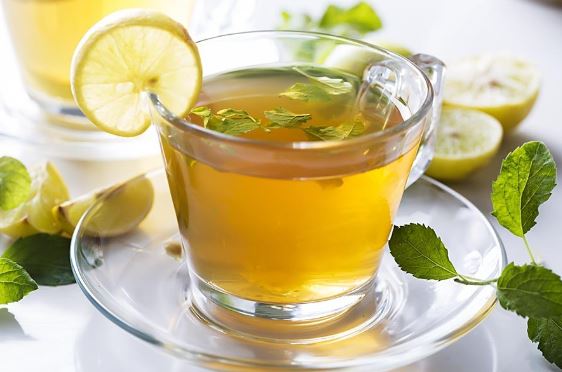
- Citrusy and aromatic, lemon balm tea is renowned for its calming effects on the mind and body.
- It can help reduce stress, and anxiety, and promote relaxation, making it an ideal choice for unwinding after a hectic day.
Turmeric Tea:
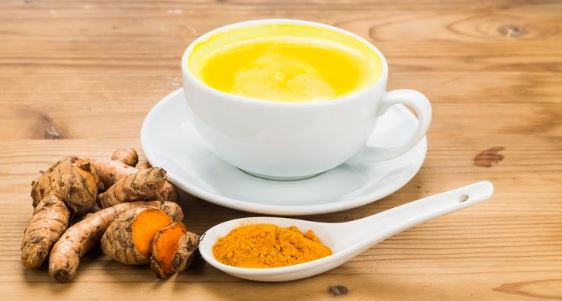
- Vibrant and earthy, turmeric tea is rich in antioxidants and possesses potent anti-inflammatory properties.
- It may help reduce inflammation, support joint health, and boost immunity.
Echinacea Tea:
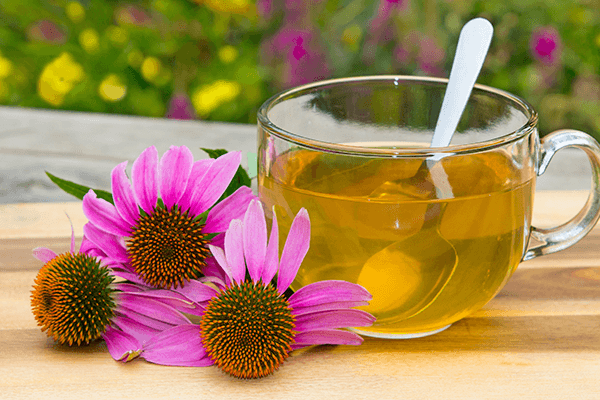
- Made from the echinacea plant, this herbal tea is believed to strengthen the immune system and help ward off infections.
- It is often consumed during cold and flu season to support overall health and well-being.
Nettle Tea:
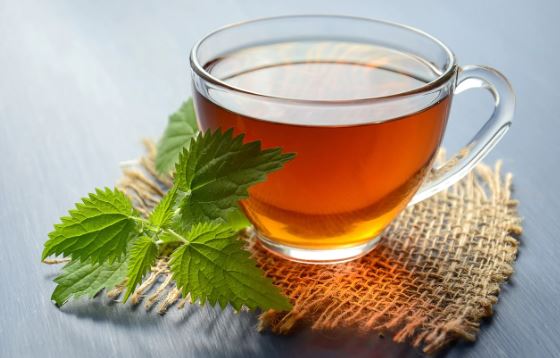
- Despite its prickly reputation, nettle tea is a nourishing herbal infusion rich in vitamins, minerals, and antioxidants.
- It may help alleviate allergy symptoms, support kidney function, and promote healthy skin.
Rooibos Tea:
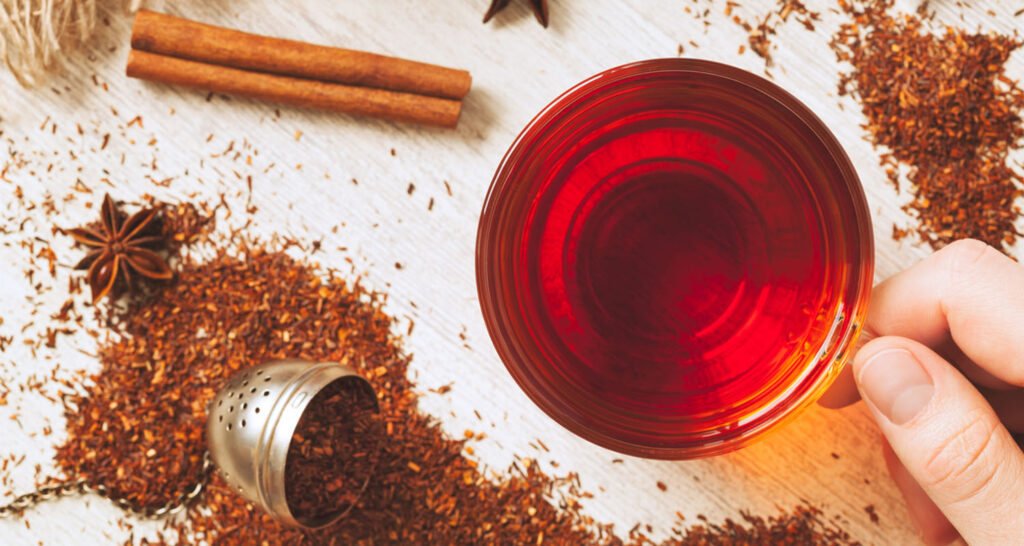
- Hailing from South Africa, rooibos tea is prized for its sweet and nutty flavor profile.
- Rich in antioxidants and free from caffeine, it offers a soothing and hydrating beverage option with potential health benefits for the skin and heart.
Hibiscus Tea:
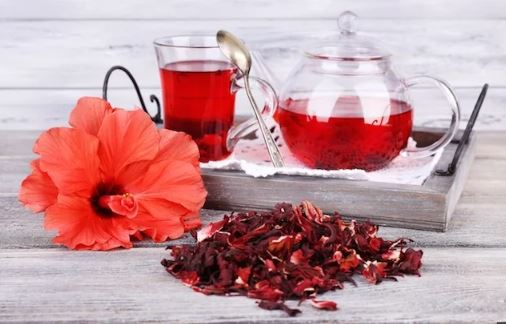
- Tart and vibrant, hibiscus tea is made from the dried petals of the hibiscus flower.
- It is loaded with antioxidants and may help lower blood pressure, improve cholesterol levels, and support liver health.
Lavender Tea:
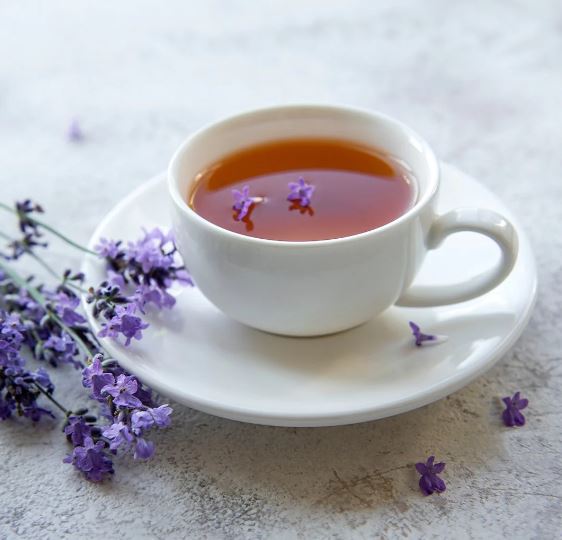
- Fragrant and floral, lavender tea is celebrated for its calming effects on the nervous system.
- It can help reduce stress, promote relaxation, and improve sleep quality when consumed before bedtime.
Harnessing Nature’s Remedies: The Health Benefits of Herbal Tea
Beyond their tantalizing flavors, herbal teas offer a treasure trove of health benefits backed by centuries of traditional wisdom and modern scientific research.
Stress Relief and Relaxation:
- Chamomile, lemon balm, and lavender teas are revered for their calming properties, helping to alleviate stress, and anxiety, and promote relaxation after a long day.
Digestive Support:
- Peppermint, ginger, and fennel teas have been shown to aid digestion, soothe upset stomachs, and alleviate symptoms of gastrointestinal discomfort.
Immune Boost:
- Herbal teas rich in antioxidants, such as moringa, echinacea, elderberry, and green rooibos, are believed to bolster the immune system, helping the body fend off infections and illnesses.
Anti-inflammatory Effects:
- Turmeric, moringa, ginger, and cinnamon teas possess potent anti-inflammatory properties, which may help reduce inflammation, alleviate pain, and support overall health and well-being.
Detoxification:
- Dandelion, nettle, and milk thistle teas are often incorporated into detox regimens, believed to support liver function, aid in toxin elimination, and promote overall detoxification.
Savoring Nature’s Bounty: The Art of Brewing Herbal Tea
Brewing the perfect cup of herbal tea is a simple yet deeply rewarding ritual. Here’s a basic guide to unlocking the full potential of your herbal infusion:
Select Your Ingredients:
- Choose high-quality herbs, spices, and flowers based on your desired flavor profile and health goals.
- Opt for organic ingredients whenever possible to minimize exposure to pesticides and ensure purity.
Heat Your Water:
- Bring fresh, filtered water to a boil and allow it to cool slightly to the appropriate temperature for your chosen herbal blend.
- Different herbs require varying water temperatures for optimal extraction, so consult individual recommendations for best results.
Steep with Care:
- Place your herbs in a teapot, infuser, or directly into a cup.
- Pour hot water over the herbs and cover, allowing them to steep for the recommended duration.
- Be mindful not to overstep, as this can lead to a bitter taste.
Sip and Enjoy:
- Once steeped, strain the herbs from your tea and savor the aromatic flavors and healthful properties of your brew.
- Feel free to sweeten with honey, agave, or a splash of citrus for added indulgence.
Conclusion: Embracing the Herbal Renaissance
In a world inundated with synthetic remedies and artificial flavors, herbal tea stands as a beacon of natural healing and pure delight. Whether enjoyed as a soothing bedtime elixir, a revitalizing morning pick-me-up, or a therapeutic remedy for what ails you, herbal teas offer a holistic approach to wellness that is as nourishing for the body as it is for the soul.
So, brew a cup, savor the flavors, and embrace the timeless tradition of herbal tea—an exquisite blend of nature’s bounty and human ingenuity.

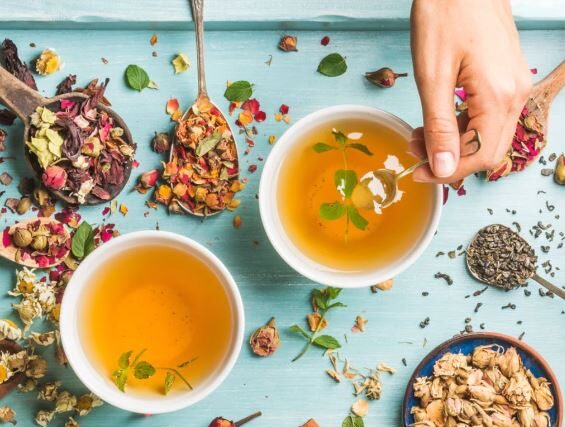


MOST COMMENTED
Animal-Based Proteins / Casein Protein / Dietary Protein / High-Protein Diets / Pea Protein / Plant-Based Proteins / Protein / Protein Deficiency / Protein Supplements / Proteins / Whey Protein / Whey Proteins
Is Protein Powder Safe for Teenagers and Children?
Animal-Based Proteins / Casein Protein / Dietary Protein / High-Protein Diets / Pea Protein / Plant-Based Proteins / Protein / Protein Deficiency / Protein Supplements / Proteins / Whey Protein / Whey Proteins
Unlock the Power of Proteins for Optimal Gut Health
Multivitamin
Total Health: Multivitamin for Active Lifestyles
Multivitamin
WellnessFusion: Complete Multivitamin Support
Dietary Supplement
Revitalize Your Health: The Magic of Red Yeast Rice Capsules
Foot care / Foot Health
Revitalize Your Foot Care Routine: Essential Tips for Optimal Foot Health
Foot Problem / Diabetics / Foot Health
Diabetics: Mastering Footwear Selection for Enhanced Foot Health and Ultimate Comfort
Exercises and Footwear Tips for Hammertoe Relief / Foot care / Foot Health / Foot Pain / Foot Problem / Hammertoes
Unlock Effective Exercises and Footwear Tips for Hammertoe Relief
Hammertoes / Foot Health / Foot Pain / Foot Problem
Unlock Relief: Essential Guide to Hammertoes Causes, Symptoms, and Treatments
Foot Problem / Foot Health
Revolutionize Your Recovery: Natural Remedies for Plantar Fasciitis – Fresh Home Keepers